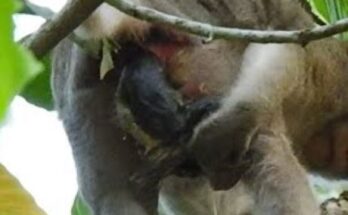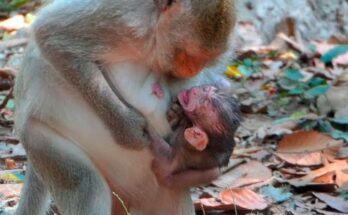The phrase “What’s wrong with the poor little monkey?” evokes a sense of curiosity and compassion, leading us to reflect on challenges faced by animals in the wild, captivity, or human environments. While monkeys are intelligent and resilient creatures, they can suffer from various physical, emotional, and environmental problems.
In the wild, a monkey might struggle due to habitat destruction, a growing problem as deforestation and human encroachment continue to expand. Without trees and natural resources, they lose their homes, food sources, and safety from predators. Climate change exacerbates these challenges by altering ecosystems and making survival even harder.
Monkeys in captivity often face a different set of issues. If not cared for properly, they may experience malnutrition, lack of stimulation, or social isolation. Monkeys are highly social animals, and separation from their group can lead to emotional stress and behavioral issues like self-harm or excessive grooming.
Sometimes, human actions unintentionally harm monkeys. In some regions, monkeys are captured for the exotic pet trade or exploited for entertainment. These practices often involve separating them from their families, exposing them to harsh conditions, and failing to meet their complex needs. Even well-meaning interactions, such as feeding wild monkeys, can disrupt their natural behaviors and make them reliant on humans, increasing conflict between species.
Illnesses also take a toll. Monkeys can contract diseases from humans and other animals, including zoonotic diseases like tuberculosis or simian immunodeficiency virus. Poor hygiene, inadequate medical care, or exposure to pollutants can further compromise their health.
Addressing “what’s wrong with the poor little monkey” requires awareness, empathy, and action. Conservation efforts, ethical treatment, and responsible human behaviors can improve their well-being and ensure these intelligent creatures thrive in their natural habitats or under proper care.


